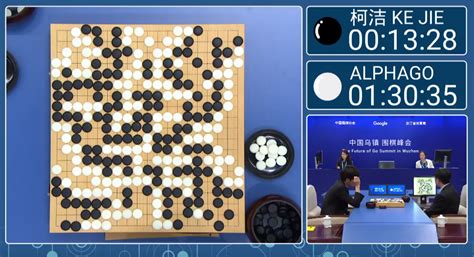AlphaGo: The AI that Mastered the Ancient Game of Go
April 20, 2024, 1:04 p.m.

Description
The game of Go, with its simple rules and near-infinite complexity (estimated configurations exceeding the number of atoms in the universe!), has captivated players for millennia. For centuries, it was considered a bastion of human intuition and strategic thinking, a domain where machines could never truly compete. Then came AlphaGo. Developed by DeepMind, a subsidiary of Google (now Alphabet Inc.), AlphaGo wasn't just any AI program. It was a revolutionary force that shattered expectations and redefined the boundaries of artificial intelligence. The Challenge of Go: Go is played on a grid with black and white stones. The objective is to control more territory than your opponent. Unlike chess, where complete information is available, Go involves hidden information and long-term strategic planning. This makes it a particularly challenging game for AI to master. AlphaGo's Rise to Dominance: AlphaGo's journey began with a deep learning approach. It utilized a Convolutional Neural Network (CNN) trained on a massive dataset of human Go games. This allowed the program to learn basic strategies and identify patterns on the board. But AlphaGo didn't stop there. Later versions, like AlphaGo Zero, took a groundbreaking leap. They relied primarily on self-play, playing against themselves millions of times and continuously refining their strategies. This approach, known as reinforcement learning, allowed AlphaGo to develop a unique and superhuman level of play. A Historic Victory: In 2016, the world watched in awe as AlphaGo faced Lee Sedol, a legendary Go player with a 9-dan ranking. In a historic match, AlphaGo defeated Lee Sedol 4-1, marking a significant milestone in AI development. This victory demonstrated the potential of deep learning and its ability to tackle complex tasks previously thought to be beyond the reach of machines. Beyond the Game: AlphaGo's impact extends far beyond the world of Go. The techniques and algorithms used in its development have found applications in various fields, including drug discovery, materials science, and protein folding. Moreover, AlphaGo sparked a global discussion about the future of AI, its potential benefits, and the ethical considerations that come with such powerful technology. The Legacy of AlphaGo: AlphaGo's story is one of innovation, perseverance, and pushing the boundaries of what's possible. It serves as a testament to the power of deep learning and its potential to revolutionize various aspects of our lives. As AI continues to evolve, AlphaGo's legacy will undoubtedly inspire future generations of researchers and developers to explore the ever-expanding possibilities of artificial intelligence. Call to Action: Want to experience the challenge of Go for yourself? Several online platforms allow you to play against AI opponents of varying difficulty. Explore the depths of this ancient game and see if you can outsmart the next generation of Go-playing AIs! Public Release: While the original AlphaGo program isn't currently available for public play, DeepMind's open-source project KataGo offers a strong Go-playing AI inspired by AlphaGo Zero. Training Time: The exact training time for AlphaGo is not publicly known, but it likely involved significant computational resources running for days or even weeks.